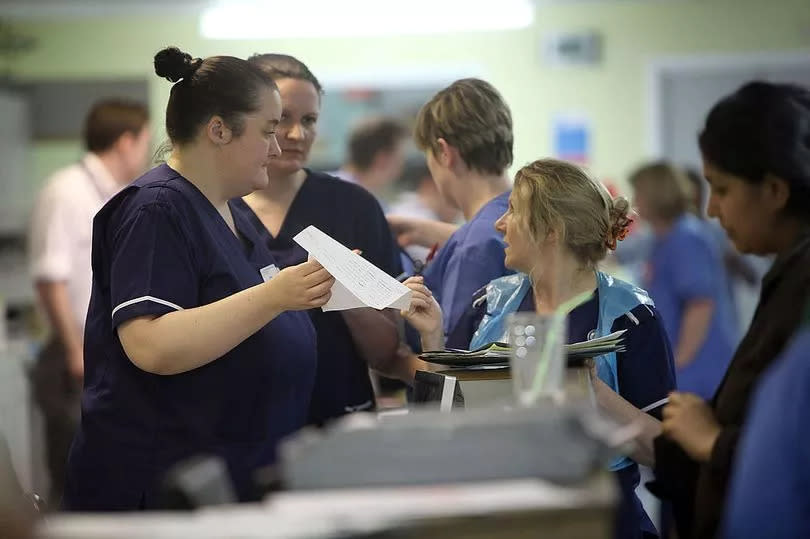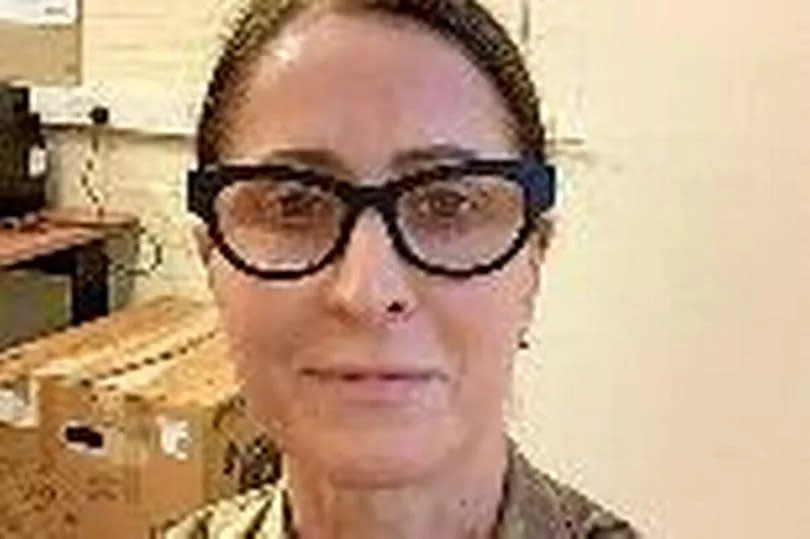NHS staff at Royal United Hospital lose paid breaks as boss gets £25,000 pay rise

NHS staff at the Royal United Hospital (RUH) are outraged after losing their paid lunch breaks, while their boss received a pay rise of £25,000. The employees at the Bath-based hospital described it as a "big slap in the face" when they were informed that anyone working 12-hour shifts or longer would no longer receive paid breaks.
The affected staff were told this was an action taken to "bring the RUH in line with many other NHS organisations". However, the decision has been labelled as a pay cut by disgruntled nurses. This news came as a shock following the revelation in the RUH's most recent annual report for 2022-23, which showed the CEO had received a salary increase of between £25,000 and £30,000.
An anonymous staff member expressed that among employees, it is viewed as "basically a pay cut". The nurse stated: "Everyone does feel really let down. It feels like a big slap in the face - during Covid we all worked our socks off."
Read more:
General Election results IN FULL for Bristol and wider West of England region
I tried the restaurant inside Bristol Beacon and I was the only person eating there
"Nursing is different now, we have a lot more responsibility than nurses used to and we need our breaks. The wards are so short-staffed we often don't get our breaks anyway. Or if we do we spend them writing up our notes," they added.
Currently, staff working shifts of 12 hours or more are entitled to one paid half-hour break as well as another half-hour break which is unpaid. However, a new proposal suggests making both breaks unpaid, reports Somerset Live.
This change was proposed in March and over 770 staff members gave feedback during consultations. Many expressed concerns that this amendment would negatively impact their work-life balance, complicate childcare arrangements, and possibly lead to employee burn-out. Yet, on May 23, a letter confirmed that these changes were to be put into effect.
The letter stated: "Having listened to and considered all of the feedback provided very carefully we have decided to implement the changes proposed within the consultation paper. Therefore, we will be removing the 30-minute discretionary paid break from all shifts of 12 (or more) hours, to align with other systems and regional trusts, create equity across RUH and support the trust's financial sustainability."
Meanwhile, the "salary and fees" of RUH chief executive Cara Charles-Barks increased from £195,000 to at least £220,000 between 2022 and 2023.

Another employee vented their frustration, saying: "There's so much emphasis on trying to get the RUH out of debt the wards are already dangerously short-staffed some days. We're the people at the bottom and then the executives are on these large figures. I will have to work an extra shift because I can't afford to be paid for half an hour less each shift; my arm has been twisted."
Trade union Unison has voiced its opposition to a proposed change at the Royal United Hospitals (RUH) Bath, stating in an email to the trust that they "do not agree with the proposal". An RUH employee commented on the upcoming changes set for September, remarking: "Legally they're not doing anything wrong but it feels quite scandalous."
An RUH spokesperson explained the current and future break policy: "At present, RUH staff working a 12-hour shift or longer receive a 30-minute paid break and a 30-minute unpaid break. Making this change from September maintaining the equivalent of a one-hour break, which will be unpaid - will bring the RUH into alignment with other NHS trusts across the country, and into alignment with the NHS Terms and Conditions of Service."
The spokesperson added: "This will also be more equitable for RUH staff who work shorter shifts, which do not include paid breaks. Paid breaks were introduced during a time when the RUH had staff shortages within nursing."
They continued by highlighting improvements in staffing: "However, we have increased our nursing staffing levels over the past two years, with an additional 200 full-time equivalent nurses in post across our wards and in the Emergency Department."
Addressing the CEO's pay, the spokesperson stated: "At the RUH we are very careful to follow all NHS England guidance when agreeing any changes to salary for all those on very senior manager terms and conditions."

 Yahoo News
Yahoo News 
